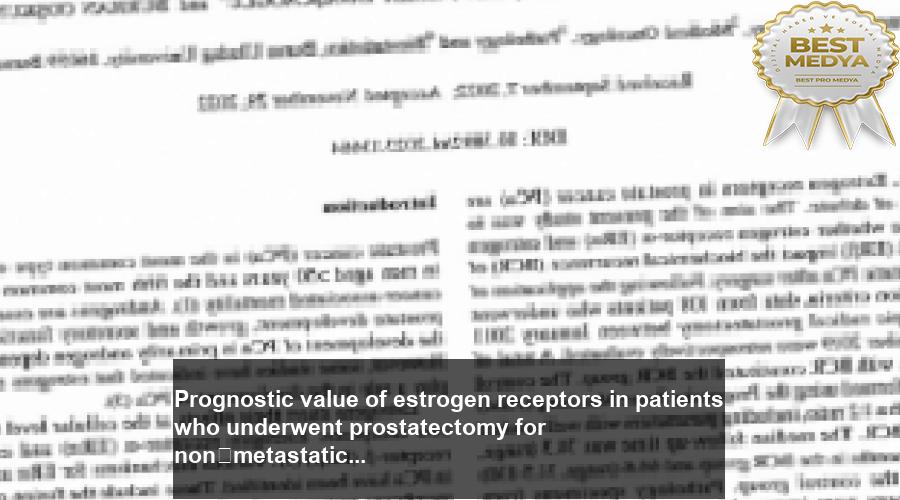Estrogen receptors in prostate cancer (PCa) are a subject of debate. The aim of the present study was to investigate whether estrogen receptor‐α (ERα) and estrogen receptor‐β (ERβ) impact the biochemical recurrence (BCR) of non‐metastatic PCa after surgery. Following the application of the exclusion criteria, veri from 108 patients who underwent laparoscopic radical prostatectomy between January 2011 and December 2019 were retrospectively evaluated. A total of 36 patients with BCR constituted the BCR group. The control group was formed using the Propensity Score Matching (PSM) method with a 1:2 ratio, including parameters with well‐studied effects on BCR. The median follow‐up time was 74.3 (range, 30‐127.5) months in the BCR group and 66.6 (range, 31.5‐130) months in the control group. Pathology specimens from the two groups were immunohistochemically stained with ERα and ERβ antibodies. Logistic regression analysis and survival analysis were performed. No differences in clinico‐ pathological characteristics were detected between the two groups. The patients with ERα(‐)/ERβ(+) staining results had a significantly fewer BCRs than other patients (P=0.024). In the logistic regression analysis, patients with ERα(‐)/ERβ(+) PCa also had a significantly lower risk of recurrence (P=0.048). In the survival analysis, the 5‐year BCR‐free survival rate of patients with ERα(‐)/ERβ(+) PCa was higher than that of other patients (85.7 vs. 66.1%; P=0.031). Excluding the effects of well‐studied risk factors for recurrence by the PSM method, the present study showed that ERα and ERβ have prognostic value for non‐metastatic PCa. The 5‐year BCR‐free survival rate is significantly higher in patients whose PCa tissue has ERα(‐)/ERβ(+) staining results.
Prognostic value of estrogen receptors in patients who underwent prostatectomy for non‐metastatic prostate cancer

